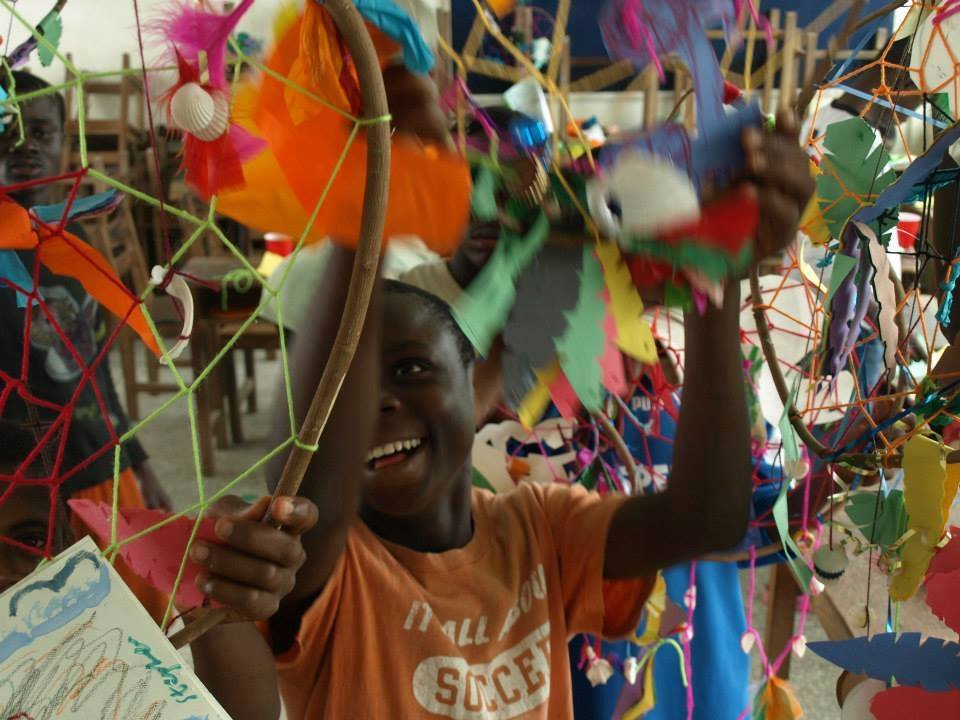A blog post by Melissa Ruisz Nazario based on an interview with Heesun Kim, LMSW.
About five or six years ago, Heesun Kim, LMSW, a student in Pacifica’s Ph.D. Program in Integrative Therapy and Healing Practices, was on the subway in New York City, and she noticed a woman sitting in front of her with tears streaming down her face. She was trying so hard to hold in those tears. It was a face that felt very familiar to Heesun, and she thought about the many times she had been in a similar situation.
“So I remember I was, a couple times, I ended up in the public bathroom, so I had to cry there,” she says. “And then I thought, you know, my grief, my sadness or all this sorrow needs to be respected, not in the corner of a public bathroom.”
Read More
Posted in:
The Psyche,
transformative,
Psychology,
depth psychology,
images,
Pacifica Graduate Institute,
narrative,
somatic,
relationship,
relationships,
interview,
Integrative Therapy & Healing Practices
A guest blog post by Craig Chalquist, Ph.D., Associate Provost of Pacifica Graduate Institute.
Today is January 9th, which fans of the Great Detective have decided is his birthday. For those into astrology, this would make his natal sun sign studious, hard-working Capricorn. Sir Arthur Conan Doyle’s novels give no indication of the time of day Holmes was born, but I have a feeling, given his interests and how he pursued them, that his natal chart is nocturnal. No doubt Virgo, Mercury, Pluto, and Saturn had a lot to say to each other in it, especially in Houses 12 (secrets, mysteries) and 8 (death, rebirth, other people’s money).
I encountered Holmes as a result of committing a crime. When I was in high school, a bully made the mistake of picking on my friends and me. The school authorities did nothing, so I knocked him out at lunchtime and set his locker on fire for good measure.
Read More
Posted in:
C.G. Jung,
Psychology,
alchemy,
depth psychology,
narrative,
storytelling,
alchemist,
jungian,
relationship,
relationships
By now, you've likely read or heard the news of the mass shooting in Thousand Oaks, California. Dr. Stephen Aizenstat, Founding President and Chancellor of Pacifica Graduate Institute, shared this letter regarding the tragedy with many in our community, and we wanted to share its message of hope with all of you.
Read More
Posted in:
Current Affairs,
Trauma,
Social Justice,
Psychology,
graduate school,
depth psychology,
Pacifica Students,
Pacifica Graduate Institute,
collective trauma,
relationship,
relationships,
love,
Spiritual
A blog post by Melissa Ruisz Nazario, based on an interview with Stacey Shelby, RCC, Ph.D., conducted by Bonnie Bright, Ph.D.
Listen to the full audio interview with Stacey Shelby here. (approx. 30 minutes)
At first, Stacey Shelby, RCC, Ph.D., didn't want to explore the Wild Woman Archetype for her research while in the M.A./Ph.D. Program in Depth Psychology with Specialization in Jungian and Archetypal Studies at Pacifica Graduate Institute. Part of it was due to the type of research she would conduct and the effect it would have on her life. When authoring the book Tracking the Wild Woman Archetype: A Guide to Becoming a Whole, In-divisible Woman published earlier this year, she used a research methodology called alchemical hermeneutics, as described by Dr. Robert Romanyshyn, Pacifica Graduate Institute Professor Emeritus, in his book, The Wounded Researcher: Research with Soul in Mind.
In the introduction to Tracking the Wild Woman Archetype, Stacey defines alchemical hermeneutics as “an unconventional methodology not readily found in traditional academic institutions, and it acknowledges that researchers are often called to their work through personal wounding and complexes. This research methodology is an alchemical process that affects the researcher.”
Read More
Posted in:
The Psyche,
Therapist,
Psychotherapy,
archetypes,
nature,
clinical psychology,
Psychology,
depth psychology,
symbol,
dreams,
individuation,
Pacifica Students,
Pacifica Graduate Institute,
alchemist,
jungian,
relationship,
relationships
A blog post by Melissa Ruisz Nazario, based on an interview with Mai Breech, conducted by Bonnie Bright, Ph.D.
Listen to the full audio interview with Mai Breech here. (approx. 27 minutes)
Mai Breech, a Psy.D. doctoral student in Clinical Psychology at Pacifica Graduate Institute, has a long history of working with orphans and foster children. In 2007, she founded the Children’s Art Village, a grassroots non-profit organization providing art and music to children in Ghana, India, and Nepal so that they can express their creative selves through a means that doesn’t require language, but rather utilizes their creativity. Over the years, the Children’s Art Village has served over 3,000 children annually, and continues to do so. Typically, the programs are summer programs, offering art and music camps for these children in very different orphanages that she partners with.
Read More
Posted in:
The Psyche,
Therapist,
Trauma,
Psychotherapy,
clinical psychology,
Psychology,
graduate school,
creativity,
depth psychology,
dreams,
Pacifica Students,
Pacifica Graduate Institute,
relationship,
relationships
A blog post by Melissa Ruisz Nazario, based on an interview with Dina Zaki, L.M.F.T., by Bonnie Bright, Ph.D.
Listen to the full audio interview with Dina Zaki here. (approx. 31 minutes)
The Greek myth of Narcissus, one version of it at least, describes a young, proud hunter known for his good looks. He disdains others, including the mountain nymph Echo, who falls in love with him. Because of his behavior, Nemesis, a goddess of revenge, lures Narcissus to a pool, where Narcissus falls in love with the water’s reflection, not comprehending it is his own image. In one version, he stares at his own reflection until he dies. [1]
From this tale we have the terms “narcissism” and “narcissist,” and even the condition of “narcissistic personality disorder,” in which “people have an inflated sense of their own importance, a deep need for excessive attention and admiration, troubled relationships, and a lack of empathy for others. But behind this mask of extreme confidence lies a fragile self-esteem that’s vulnerable to slightest criticism.” [2]
Read More
Posted in:
Trauma,
clinical psychology,
Psychology,
Pacifica Students,
Pacifica Graduate Institute,
relationships,
love
Love and Relationships as a Spiritual Path in the 21st Century: A Jungian Perspective. An Interview with Polly Young-Eisendrath. A Guest Post by Bonnie Bright, Ph.D.
Listen to the full audio interview with Polly Young-Eisendrath here (approx. 41 mins)
Personal love—that is, love that we feel within—has changed in the 21st century, according to Jungian analyst, Polly Young-Eisendrath. In this day and age, we seek three very specific outcomes in our relationships that have not always been sought in “traditional” relationships. First, we want relationships that take place between equals, which are reciprocal and mutual. Second, we want to choose whomever we want to love and not be bound to traditions or tribes. Finally, we long to be witnessed by another person who really knows, sees, understands, and hears us.
Read More
Posted in:
C.G. Jung,
depth psychology,
relationships,
love










